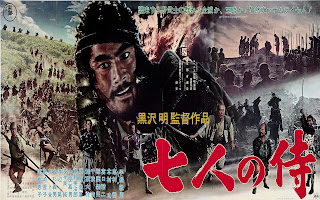Movies are great. Many people think so. Many people praise the art form, the communication through the visual medium. They praise it. And, I agree.
Years ago, I watched Adam Sandler and laughed at his "goofy antics" as he put on a funny face and tried to beat up his grandfather. Yes, I was one of those people. Laughing at dirty jokes and watching Thomas The Tank Engine crash into a tank of gasoline, and watching Pac-Man eat sentient ghosts.
Ha, ha, ha, ha, ha, ha, but I'm not that kind of person now. Time has made me an unhappy, miserable, old man and has shifted my tastes. For years, I have been watching movies, but these films are some of the greatest I've ever seen. Or, the opposite for everybody else. Ha, ha, ha, ha, ha.
Inception
The first film on the list is Inception, which is often the most confusing thing to me because I could not rewatch it a second time, although this, perhaps, was the first film to make me feel tingly and strangely affected inside. I mean, it's terrifying? But at the same time, it's amazing. Lurid, fresh, beautiful. Sure, I might not have watched it on the big screen, but, sitting at home, lazily zoning out on the couch, this movie was immediately impactful. This movie itself, also, made me a large fan of Christopher Nolan. Although, The Dark Knight Rises and Dunkirk were confusing, alright watches. But, still, only the ending was the most impactful to me. The amount of time passing was like those strangely existential Teen Titans Cartoons I used to watch on Cartoon Network, which still traumatizes me today and leave me crippled and horribly stressed about the future. Ha, ha, ha, ha, ha. But this movie is great, it's like Paprika but mixed with a bit of ol' Borges, the man who made Babel.Seven Samurai
Seven Samurai was a great watch, back when I had finished 2001: A Space Odyssey and was idling along the way, memorizing and rewatching old Kubrick Films, I stumbled upon Akira Kurosawa and the Seven Samurai while I scrolled along MetaCritic. I had HBO Max, and so, I watched the entire length of the film. In Black and White and full translated Japanese, which always sounds strangely unnatural to me, like bad Chekhov and Dostoevsky translations. But, still, the movie was grand, it was magnificent, sunny, strange, interesting. The cinematography was always grand, with a splash of depth, because Akira Kurosawa always had a way with framing.It's a splendid movie to watch, and the ending has a tragic sense to it, where they all die, and the war seems brutal and cold. There is a reason why this is the greatest movie of all time. With its wide cast of characters, interesting themes, and fully-fleshed out feudalistic world. At some places, it turns more and more soft and colorful, while other times it reveals the harshness of a world. I've always felt that this movie is the beginning of fantasy action films and further heist films such as Ocean's 8 and LOTR. And more, due to the influence on Kubrick and more interesting directors.








Comments
Post a Comment